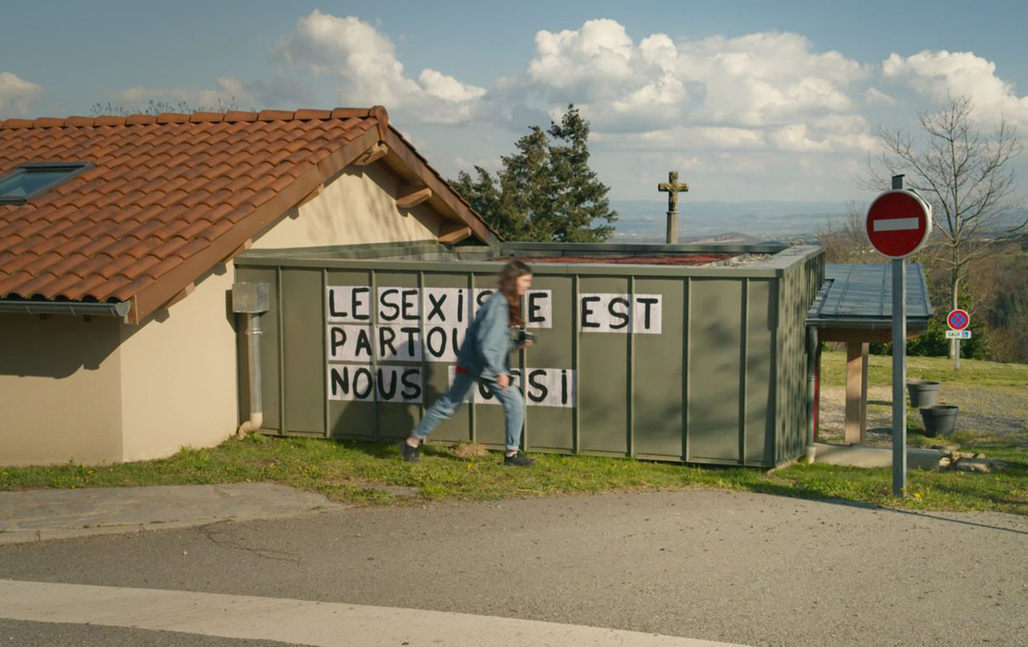
Riposte féministe (Feminist Ripost), Simon Depardon and Marie Perennès follow the footsteps of activist message posters

In Riposte féministe (Feminist Ripost), Simon Depardon and Marie Perennès go to meet feminist collectives throughout France to listen to the words of activists and to film their daily struggle to take back public space by means of posting messages. They have made an important documentary that provides an understanding of a movement driven by an unswerving determination.
What made you want to make this film?
Marie Perennès: A personal commitment to feminism and a furious curiosity. I entered as a militant into this absolutely fascinating world where determination, anger and a thirst for justice dominate. The idea had come to Simon and me to listen to the words of activists to better understand this movement that fascinates us by its momentum and to find out what is hidden behind the messages they post. We thought of this film as a brick to contribute to their building.
They are very direct with you about what animates them? How did you work with them?
M.P.: Through long scouting sessions where we talked a lot and detailed where we were wanting to go. Over time a sort of moral contract was created between these women and us. They knew what we were going to do with their words. The trick was to find the right distance that would allow them to open up.
Simon Depardon: In total, we met about fifteen groups throughout France. We were looking to understand them and to create a level of trust that would then allow us to implement our approach, which involved listening to what they had to say.
What was the most surprising thing you discovered?
S.D.: We were blown away by the politicisation of the activists and astonished by the personalities that were bursting forth in front of us. We wanted to reconstruct the moments we spent with each group, without their gazes meeting the camera.
“There is this journey in the film: the body, space and the systemic problem of the murder of women, which is behind the movement of the posting of messages.”
One of the recurring points in what they say has to do with the violence of the struggle. The question is divisive…
S.D.: The question of the violence of the response came up rather quickly during discussions. "Sexist violence, feminist ripost!" is one of the slogans they use frequently. The philosophical debate is, indeed, not settled, but this is the case within all movements for civil rights.
They talk a lot about how hard their struggle is…
M.P.: We quickly felt that the messages they were posting were only the tool of a much wider struggle. They constitute a form of ripost, but their desire to change the world goes well beyond that. They have the conviction that if society were less patriarchal, a lot of social problems would be resolved. This mix of anger and hope really left a mark on us.
S.D.: We first tried to explain that through these posted messages, these activists wanted to reclaim public space, because they have the feeling that it doesn't belong to them. There is this journey in the film: the body, space and the systemic problem of the murder of women, which is behind the movement of the posting of messages.
Why did you take the approach of using almost exclusively stationary shots?
S.D.: We had to give priority to the tripod to show the formation of the collective in its approach to reclaiming the street. The idea was to re-establish the importance of space in the message posting sessions. If we had had a camera on our shoulders, that would have added a form of counter-productive urgency.
M.P.: There was the idea of using stationary shots to anchor their presence on the street and their right to struggle to exist there, but we also wanted everyone in the documentary to have the right to the best possible cinematographic approach.


